BioBuilder is over-the-top happy to return to in-person learning! First up: BioBuilder's new Innovation Pathways Program in partnership with Worcester Public Schools. Check it out!
Celebrating Career and College Development for High Schoolers
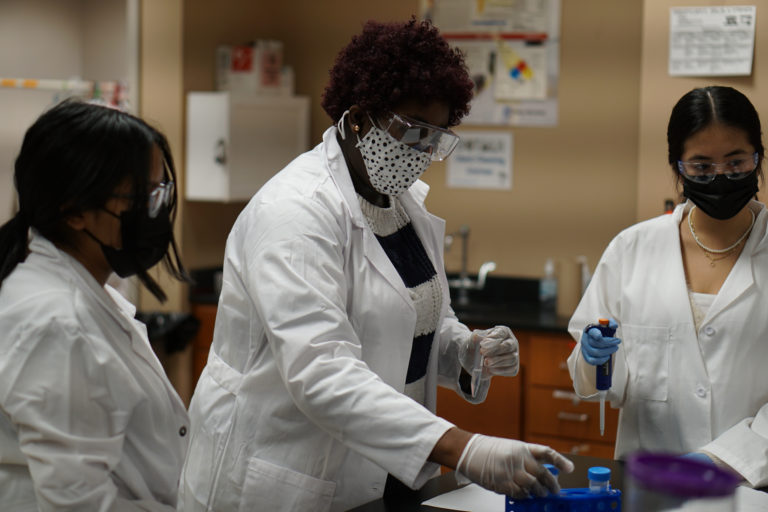
The 2021 academic year saw the return of in-person learning at the Worcester, MA, Public Schools (WPS). Worcester high school students again have the opportunity for college and career prep through the Massachusetts Innovation Pathways Program (IPP). IPP is an early career program that provides high school students with advanced studies focused on work-readiness for high-growth fields, many of them STEM-related, along with hands-on skills development and opportunities for internships.
The WPS program offers seven Pathways, including a new one in biotechnology, biomanufacturing and synthetic biology. This is where BioBuilder’s expertise and curricula come in.
Celebrating Success
MA State Senator John Cronin led a discussion of the Innovation Pathways at a public gathering held inside Worcester Technical High School. The event took place on November 30, 2021, and included educators, parents, students, industry representatives, and other community partners. They shared their experiences and thoughts about the Innovation Pathway Program. Here is a sampling of the paraphrased insights offered during the event:
IPP classroom visits
A highlight of the afternoon was the chance to see the IPP classrooms in action. Guests were welcomed to the BioBuilder IPP by Jessica Racine, the masterful teacher leading the new course. She led the students and visitors through the foundational ideas of that day’s experiments, the calculations needed for making lab solutions, and then moved the students into the lab where they put all that content into context.
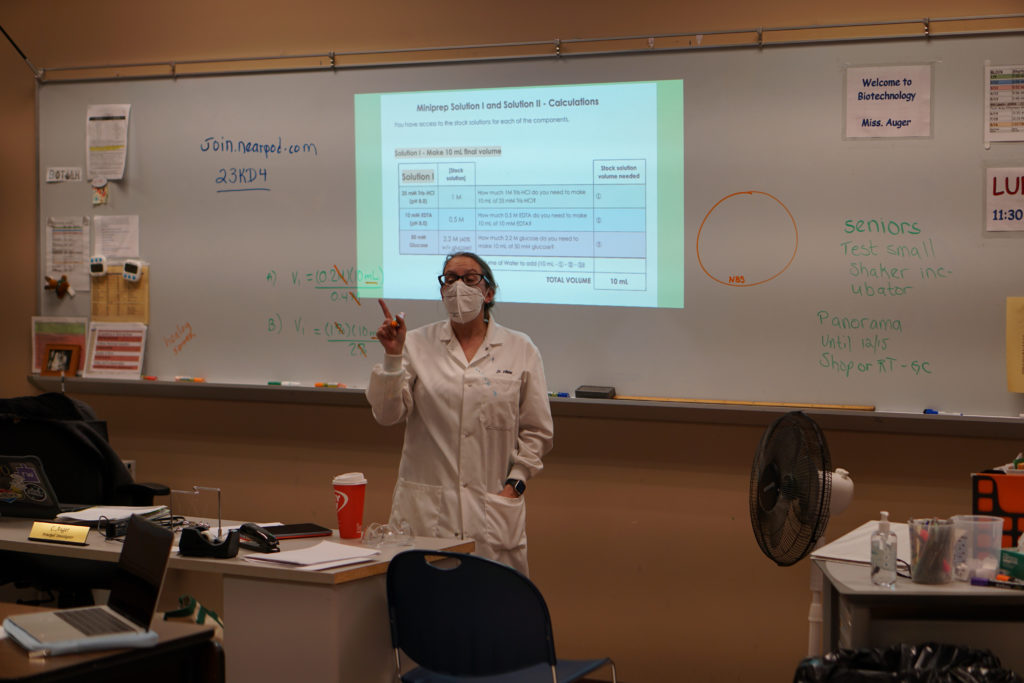
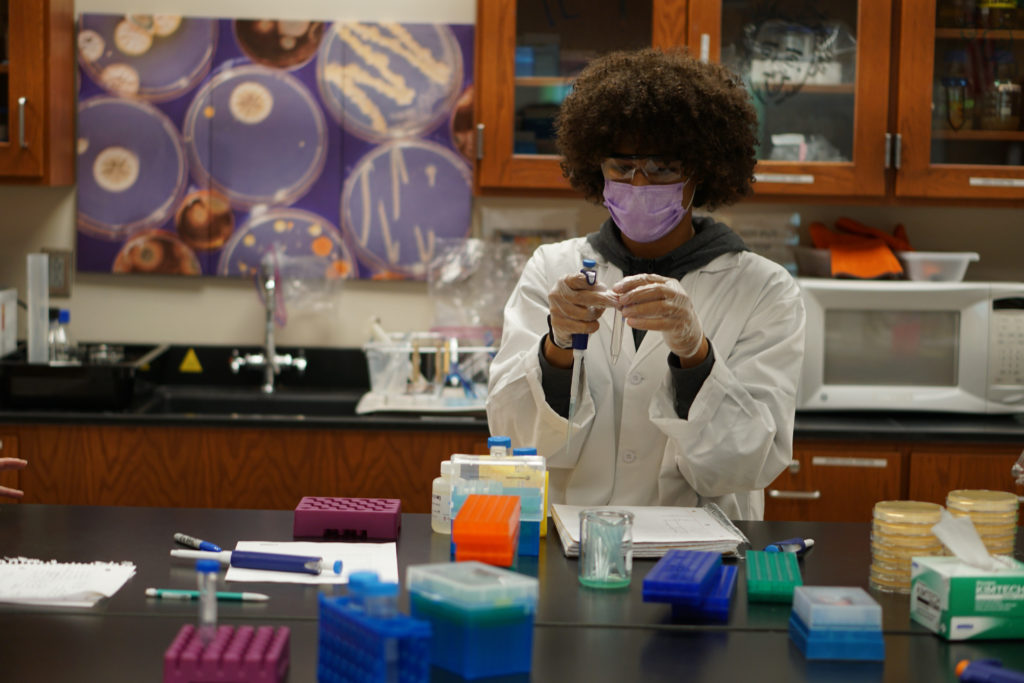
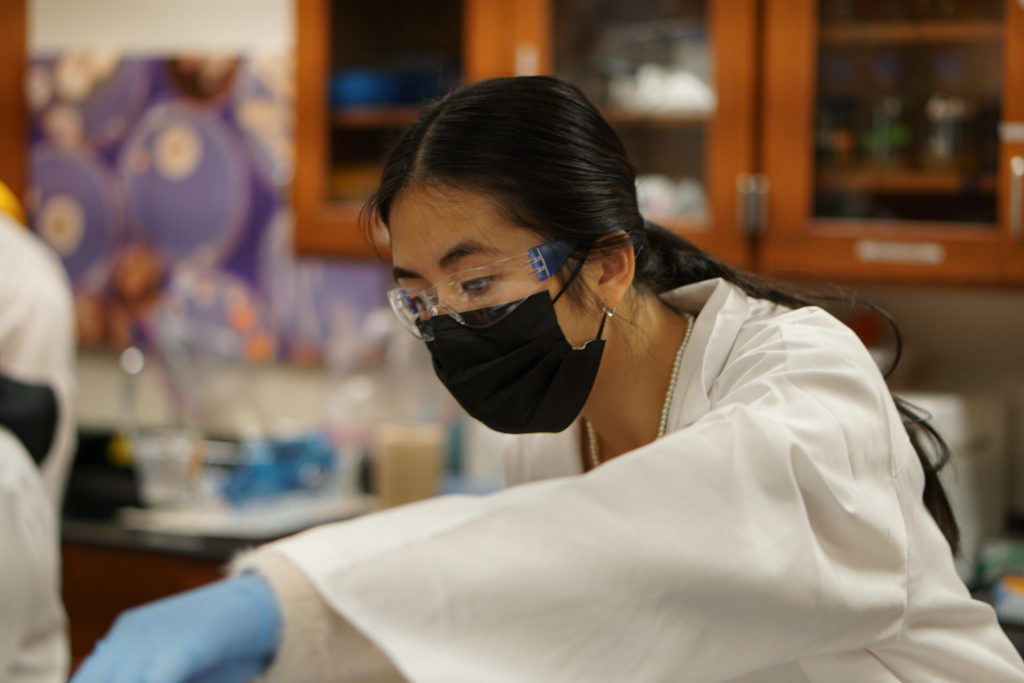
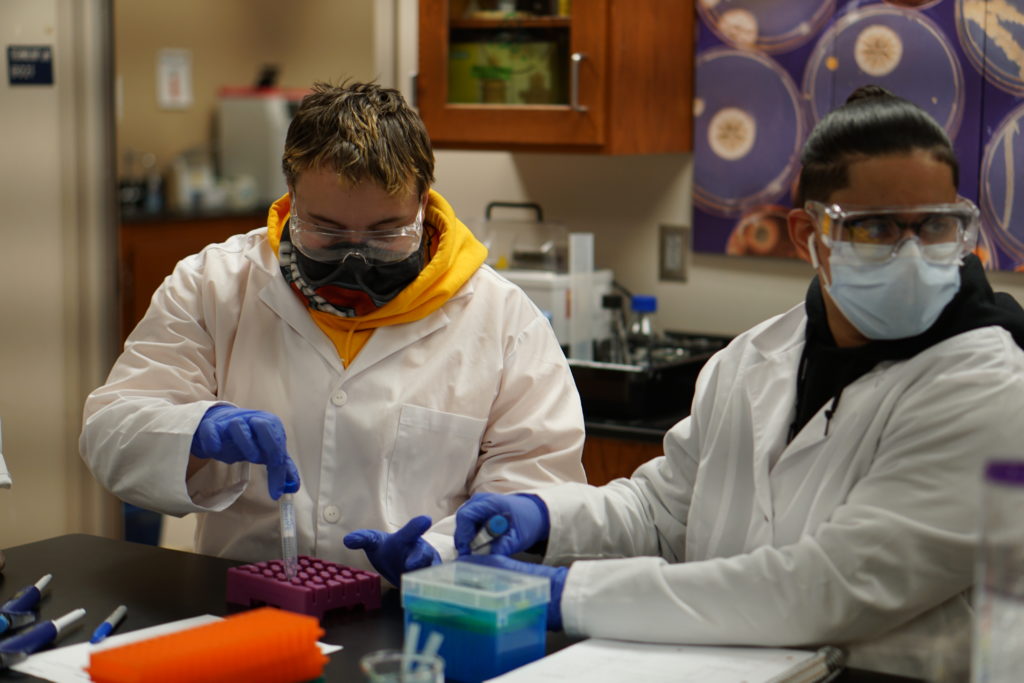
There couldn’t be a better way to ramp up the new academic year and inspire the entire community!
Device Dude
The first BioBuilder course is “Foundations of Modern Biotechnology: Knowledge, Skills, and Competencies.” In this course, students are introduced to the technical and conceptual underpinnings of 21st century biotechnology. They gain a basic proficiency with essential laboratory tools and skills that are required for success in today’s biotech industry. Students learn about molecular biology, microbiology, bioengineering, and bioethics, and develop professional laboratory practices using living organisms that have broad application in today’s biotech industry. They apply their new knowledge and skills to a semester-long lab experiment in which they integrate industry-standard professional practices and ways of thinking into their research.
The second BioBuilder course is “Applications of Modern Biotechnology: Synthetic Biology and Industrial BioManufacturing.” In this course, students use BioBuilder laboratory modules to gain hands-on experience with the engineering design process for biotechnologies. They apply modern lab techniques to evaluate cellular behaviors and rigorously analyze experimental data. Additional engineering and problem-solving activities lead student teams to identify a challenge they might address with a novel biotechnology of their own design. Students develop protocols and experimental plans for prototyping at least one element of their team’s biodesign. By the end of the course, students have gained basic knowledge, skills, and competencies that are essential for practicing bioengineers who want to design, test, and commercialize modern biotechnologies.